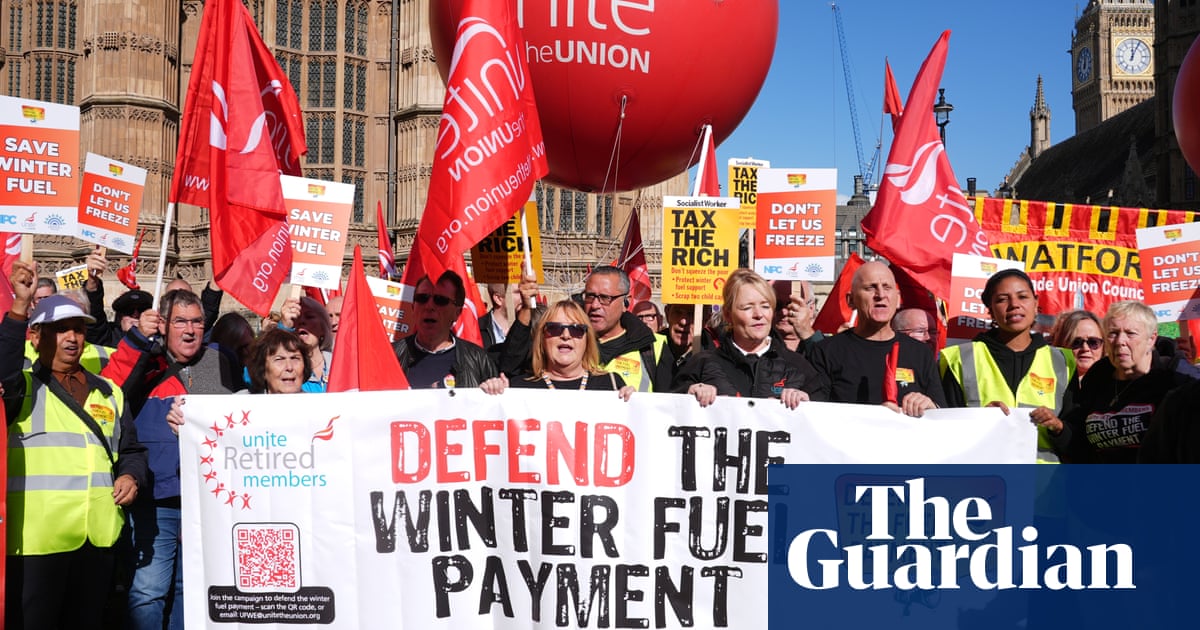All pensioners with an income of £35,000 or less a year will have the winter fuel payment restored in full, Rachel Reeves has announced, after weeks of uncertainty over the decision to make a U-turn on scrapping the benefit.
Ministers are restoring the automatic payments as a universal benefit this winter and then recouping the money when higher-income pensioners fill in their tax returns, as creating a new means test would be a highly complex option.
The decision means that about 7.5 million pensioners in England and Wales who missed out on the payment of up to £300 last year will now get it, after a backlash against one of the most unpopular policies of the Labour government.
The chancellor has brought forward confirmation of the change to the £11,500 income threshold over which pensioners are no longer eligible to next week’s spending review from the autumn budget.
Treasury officials said the new £35,000 threshold was well above the income level of pensioners in poverty and broadly in line with average earnings, balancing support for lower income pensioners with fairness to the taxpayer.
Reeves is expected to set out how she intends to fund the change – which will cost about £1.25bn – at the autumn budget, which is likely to lead to accusations that she is effectively making an unfunded pledge, although the Treasury insisted her fiscal rules would be met.
“Targeting winter fuel payments was a tough decision, but the right decision because of the inheritance we had been left by the previous government. It is also right that we continue to means-test this payment so that it is targeted and fair, rather than restoring eligibility to everyone including the wealthiest,” Reeves said.
“But we have now acted to expand the eligibility of the winter fuel payment so no pensioner on a lower income will miss out. This will mean over three-quarters of pensioners receiving the payment in England and Wales later this winter.”
The option of paying all pensioners a winter fuel payment and then asking for wealthier people to repay the money is a similar approach to that taken by the former Conservative chancellor George Osborne when he reduced child benefit eligibility for better-off parents.
Treasury officials were concerned that bereaved families of tens of thousands of dead pensioners could be pursued by tax officials to recoup winter fuel payments under the new system.
Pensioners will also be able to opt out of receiving the payments. Approximately 2 million individuals in England and Wales over state pension age have taxable incomes above £35,000, the Treasury said.
The Scottish government and the Northern Ireland executive will both receive an uplift in their funding as a result of this change in England and Wales.
The decision to means test the previously universal payment was one of the first announcements by the chancellor after Labour’s landslide election victory last year and has been widely blamed for the party’s collapse in public support.
This change meant the number of pensioners receiving the payment was reduced by about 10 million, from 11.4 million to 1.5 million.
Party activists said the decision to axe £1.5bn in winter fuel payments last July, limiting them to either £200 or £300 a year to pensioners in England and Wales who receive means-tested pensions credit, came up repeatedly on the doorstep during last month’s local elections.
Anxious Labour MPs had been piling pressure on Keir Starmer to change his mind over the cut. No 10 officials feared the strength of feeling could have an impact on their broader plans for welfare reform, with previously loyal backbenchers threatening to rebel in a crunch vote this month June.
The government’s reversal came despite Downing Street denying that it would make changes to winter fuel payments after theGuardian revealed that it was rethinking the cutamid anxiety at the top of government that the policy could wreak serious electoral damage.
